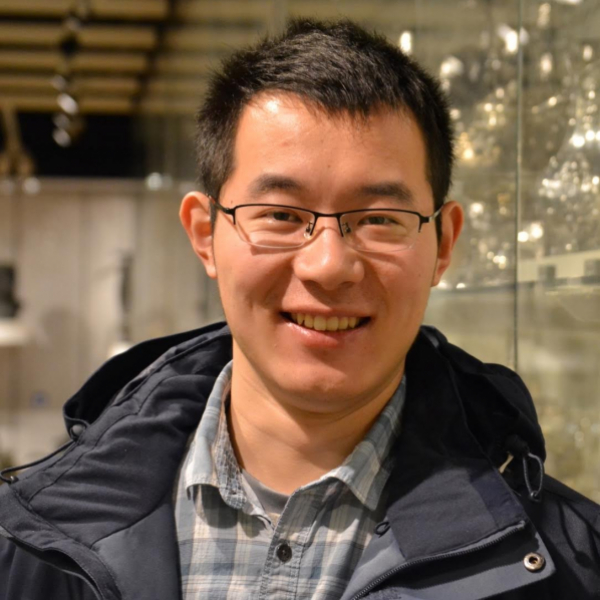Xiaoqi Sun Wins Rackham Predoctoral Fellowship

Xiaoqi (Kevin) Sun, a fifth-year PhD candidate in the Pharmaceutical Sciences Department, has been awarded the 2021 Rackham Predoctoral Fellowship.
The Rackham Predoctoral Fellowship supports exceptional doctoral candidates who are actively working on their dissertation research and writing. The competitive fellowship acknowledges students who have taken a risk and are working on particularly creative or ambitious dissertations, and provides the winner with a stipend of $34,000, candidacy tuition and required fees for twelve months.
Xiaoqi earned his bachelor's degree in pharmacy from Fujian Medical University and master’s degree in chemistry from Soochow University. He has published 23 papers, including six first-authored or co-first-authored papers, and has filed three U.S. patent/PCT applications based on his research.
Xiaoqi has won multiple academic and research awards, including the 2018 Rackham International Student Fellowship, ChinaNanomedicine 2015 “Best Poster Award,” and 2015 National Scholarship of China for Postgraduate Students. He has also served as a peer reviewer with ten academic journals.
Xiaoqi’s thesis, Developing new STING-activating Cancer Immunotherapy, is a new project area for his advisor, Dr. James Moon’s laboratory, and was driven by Xiaoqi’s initial independent explorations. In recent studies, the cGAS-STING-Type-I IFN axis has shown to be critical for cancer immune surveillance and has emerged as one of the hottest research areas in the immune-oncology space.
For generations, medical professionals have noticed that some cancer patients who developed infections would see marked reductions in their tumor size. The theory being that when the immune system encounters an outside pathogen, it also primes it to attack the invading cancer cells.
Scientists are developing a set of drugs that aims to tap into this immune response, which target a protein – stimulator of interferon genes (STING).
“In the beginning, I tried to load STING agonists in a commercially available vaccine adjuvant,” recalls Xiaoqi. “But I happen to find there are some interactions between STING agonists and specific metal ions. Inspired by the fact that many nutritional metal ions have important immune functions, I screened various nutritional metal ions to see whether they could affect STING agonists' bioactivities and physicochemical properties.”
“I discovered that manganese2+ (Mn2+) and Cobalt (Co2+) potentiated type-I interferon response induced by STING agonists by up to 77 folds,” explains Xiaoqi. “Besides, Mn2+ and cyclic dinucleotide (CDN) STING agonists could self-assembled into nanoparticles (CDN-Mn Particle, CMP) that improve immune cell delivery and elicit strong immune cell activation.”
So far, Xiaoqi’s research has shown promising results. In preclinical studies, CMP eradicated multiple established tumors after intravenous administration, including the tumors resistant to current cancer immunotherapies (anti-PDL-1 and anti-CTLA4). He also compared his platform with leading STING agonists in clinical trials and demonstrated superior therapeutic efficacy of the CMP platform.
“Eventually, I hope the nanomedicine I developed could become a drug that helps cancer patients,” says Xiaoqi. After completing his PhD, Xiaoqi will pursue a position in academia or industry to continue his work on cancer immunotherapy and gene delivery.
“When I first met him during his graduate school interview in February of 2016, Xiaoqi already had extensive undergraduate/master research experience,” says James Moon, PhD, John G. Searle Associate Professor of Pharmaceutical Sciences. “Xiaoqi has generated a prototype of “metalloimmunotherapy,” and his work suggests that nutritional metal ions could serve as a simple powerful pharmaceutical ingredient for improved cancer immunotherapy.”
“Xiaoqi is a truly outstanding student and a great team player,” adds Dr. Moon. “I have absolutely no doubt that Xiaoqi will excel in his PhD studies and beyond to become an independent scientist and a leader who will make great contributions to biomedical sciences.”



